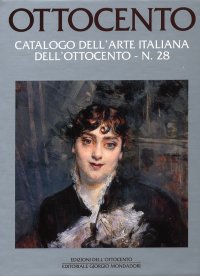Giovanni Boldini. Il Piacere
Rovereto, Mart, November 14, 2020 - February 28, 2021.
Edited by Beatrice Avanzi and Tiziano Panconi.
Genova, 2020; paperback, pp. 368, col. ill., col. plates, cm 24x28.
cover price: € 54.00
|
Books included in the offer:
Giovanni Boldini. Il Piacere
Rovereto, Mart, November 14, 2020 - February 28, 2021.
Edited by Beatrice Avanzi and Tiziano Panconi.
Genova, 2020; paperback, pp. 368, col. ill., col. plates, cm 24x28.
FREE (cover price: € 54.00)
Ottocento. Catalogo dell'Arte Italiana dell'Ottocento. Vol. 30
Milano, 2001; paperback, pp. 495, b/w ill., col. plates, cm 22x30,5.
FREE (cover price: € 40.00)
Ottocento. Catalogo dell'arte italiana dell'Ottocento. VOL. 28
Milano, 1999; bound, pp. 800, col. plates, cm 22x30.
FREE (cover price: € 77.47)
2200 a.D. plug-in space. Technology, nature, mobility
Finetti Gianluca - Vermi Debora
Maggioli Editore
Santarcangelo di Romagna, 2016; paperback, cm 17x24.
(Politecnica).
series: Politecnica
ISBN: 88-916-1816-0 - EAN13: 9788891618160
Subject: Essays (Art or Architecture),Urbanism
Languages: 
Weight: 0.65 kg
Utopia, objectively based on world's dynamism. Exactly as E. Bloch's defined the bond between hope and utopia: definitions no more heterodirect towards the future but rather concentrated in the potentiality of the present, as practice projected in the history and able to modify it towards an ethically made humanity. E. Bloch shows how man's anticipating conscience, its capacity to anticipate projects with the power to push forward the historical development, occurs in both small historical forms such as dreams and aspirations that characterize daily life, the fantasy world of fairy tales, the social utopias and in the great religious and philosophical conceptions.
In all these forms of man's anticipatory consciousness, the fundamental element is hope, which is not something purely subjective, but a real aspect of human being's concrete development. Being is not in fact ontologically definable in its immediate static and crystallization but the real, vital being is not-being-yet. Even when M. Foucault writes about heterotopia, he refers to a game of mirrors, which reflects between the real and a possible imaginary.











